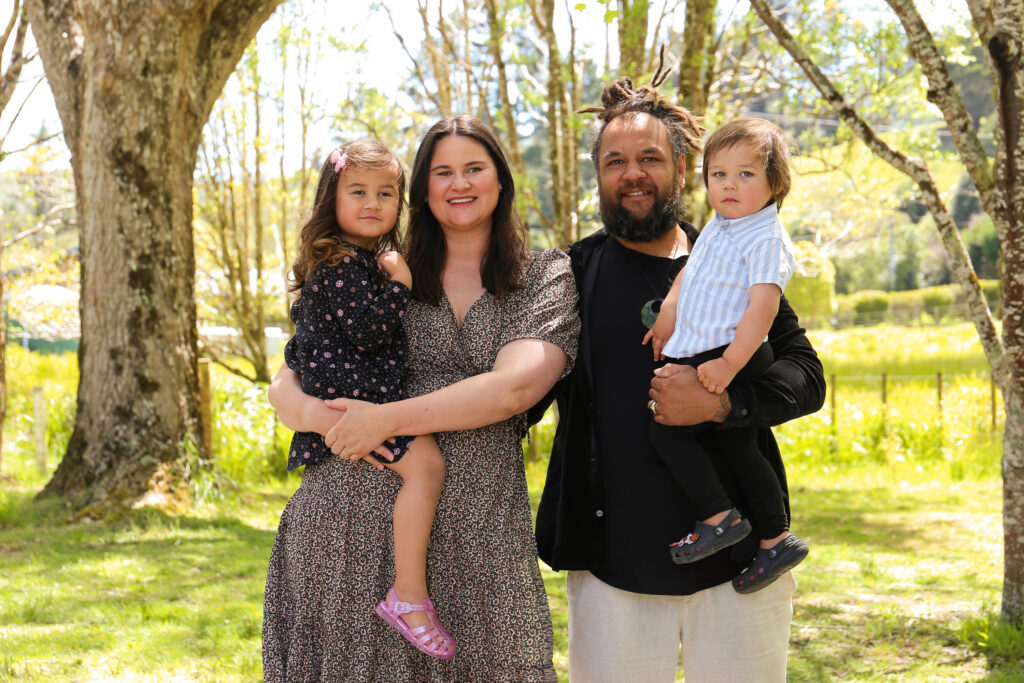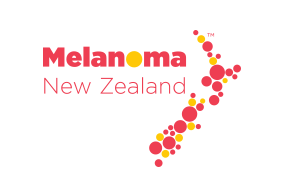
So, when the 33-year-old got a call from her GP in early 2022 to say that the results from a biopsy he had taken from a spot under her arm showed she had stage 1 melanoma, she was completely floored.
Just a week earlier, at a routine visit with her GP in Te Whanganui-a-Tara Wellington with her four-week-old son, Johnny Ocean, Briar decided to take the opportunity to show her doctor a spot slightly larger than a freckle that she had recently noticed was quite dark and a bit itchy. She said the doctor thought it looked okay but took a biopsy as a precaution.
“I felt okay about it because I’d had moles taken off before, and they were fine. I was more concerned about who would hold my baby while I got the biopsy done. But all it took was one stitch, and it was done.
“But the doctor had some bad news to tell me – I had melanoma. He asked if I had any questions, but I just felt spaced out. It hadn’t even come into my realm of thinking.
“I had no insight into melanoma or skin cancer in general. So, of course, my mind started to race and jump to conclusions.
“It was pretty horrible. My husband was working out of Wellington at the time, but luckily, my mum lived close.”
The GP immediately referred Briar to a specialist at Hutt Hospital.
“I had no idea where to go for information about melanoma, so I Googled it. Unfortunately, the first thing that came up was, ‘How fast do you die from melanoma?'”
After getting an appointment to see the specialist two months later, she went along with her husband Johnny and son, prepared with a list of questions, including some she had found on Melanoma New Zealand’s website.
“The nurse and surgeon were lovely and gave me all the information I needed and said they would cut it out there and then. But it was such a whirlwind.
“The procedure took just over an hour, and the nurse kept popping out to see if my son was okay. It was such a small spot, but they took so much out.”
For the next two days, Briar had to keep her arm elevated, which was not easy because she still had to breastfeed Johnny Ocean and look after her young daughter, Lennon.
A week later, she returned to the hospital to have her dressing changed, but unfortunately, her body rejected the soluble stitches, and they were difficult to remove.
“Because they didn’t want to do a skin graft, they had to pull the skin quite tight. They gave me a sleeve to put over the wound, which made it feel more protected. But it took a good couple of months to be able to touch it. It was pretty gnarly.”
Briar was told to massage the wound to help it heal, but she said that doing that made her feel physically sick – and today, the scar still feels quite numb.
Briar now has six monthly checks with a skin specialist and books in for an annual review with her GP. She also joined the Melanoma Support New Zealand Facebook page, which she says has been helpful and informative.
“In Aotearoa, we have this laid-back attitude that everything will be alright, and we assume skin cancer won’t happen to us. Everyone knows the UV level here is bad, but we still risk it every day. It’s just not worth being tanned.
“For Māori, in particular, the focus seems to be on other cancers – not skin cancer. It is so important to educate about the dangers of melanoma for all ethnicities. We all know about ‘slip, slop, slap, seek, slide’, but people need to know you must wear the right SPF, apply sunscreen frequently, and cover up or stay out of the sun as much as possible. My kids are so covered all the time.”
People with darker skin may have a lower chance of getting melanoma, but they often have thicker, more serious melanomas.
Briar hopes her story will encourage other whānau Māori to get their skin checked, even if they don’t have any spots they are worried about.
“Melanoma is such an aggressive cancer, but your chances are much better if you catch it early.
“Being Māori and young, I thought the chances of me having melanoma were low. But just because we don’t fit the mould of a typical skin cancer patient doesn’t mean we’re protected from getting it.”
Image: Rachael Sarah Photography
